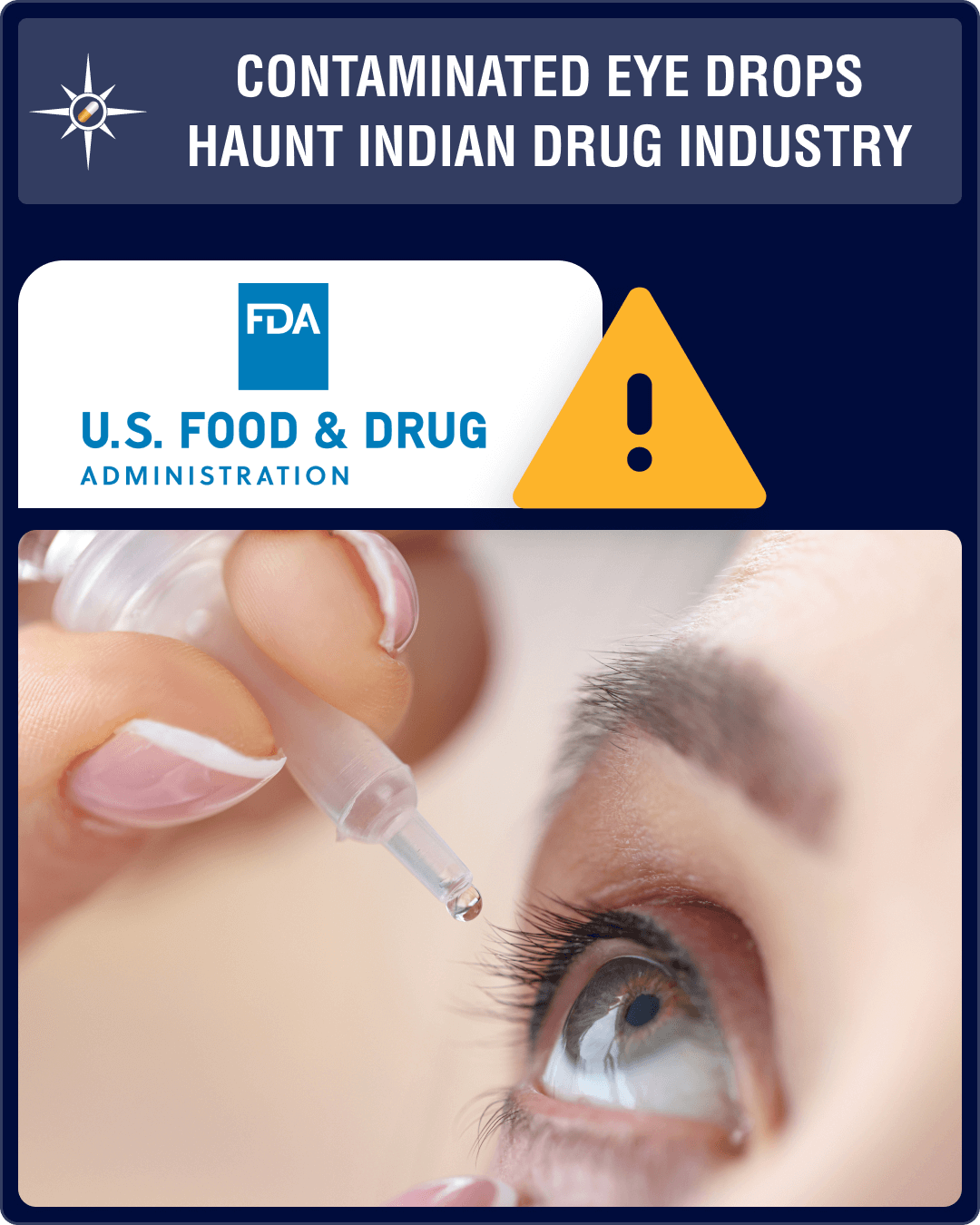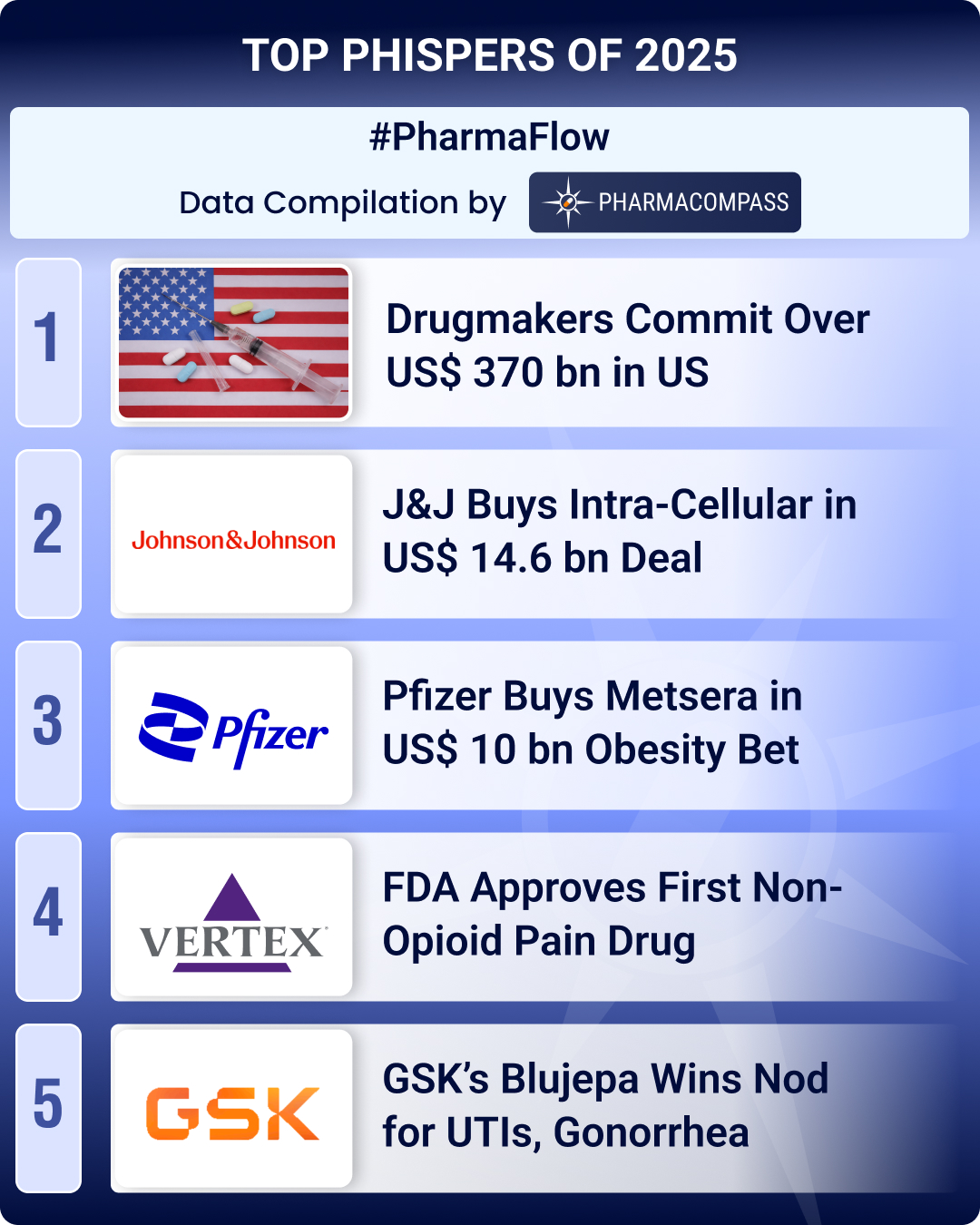
By PharmaCompass
2023-02-09
Impressions: 2154
India’s US$ 49 billion pharmaceutical industry has often been described as the ‘pharmacy to the world’, as it is the world’s largest exporter of generic drugs. But the country is having to contend with one scandal after another. After the deaths of scores of children, allegedly due to the consumption of cough syrups made by India’s Maiden Pharmaceuticals in October, there was news of a similar crisis in Uzbekistan last December. The culprit this time was Indian drugmaker Marion Biotech. In all, India-manufactured cough syrups have been linked to the deaths of around 89 children in the two countries.
Last week, yet another drug contamination case rocked the global pharma industry. This time, the victims were the consumers in the United States. The US Food and Drug Administration (FDA) issued a warning against using an eye drop made by India-based Global Pharma Healthcare. FDA said the Artificial Tears eye drop manufactured by Global Pharma has a potential bacterial contamination and the company has violated current good manufacturing practices (cGMPs). Global Pharma’s plant is situated in Kancheepuram (near Chennai) in the state of Tamil Nadu.
As of January 31, the Centers for Disease Control and Prevention (CDC) had identified 55 patients in 12 states of the US with infections linked to the use of Artificial Tears. Associated adverse events include hospitalization, one death with bloodstream infection, and permanent vision loss.
Artificial tears are widely-used over-the-counter eye-drops used to lubricate dry eyes. In the US, the eye drop manufactured by Global Pharma is distributed by EzriCare LLC and Delsam Pharma.
FDA has asked consumers not to purchase and immediately stop using EzriCare Artificial Tears or Delsam Pharma’s Artificial Tears due to potential bacterial contamination.
Eye drops with antibiotic-resistant bacteria
The CDC found the product contaminated with an extensively drug-resistant strain of Pseudomonas aeruginosa bacteria. This bacteria is resistant to around 12 antibiotics, and was susceptible to only cefiderocol – an antibiotic that is used to treat complex infections.Pseudomonas bacterial infection is generally acquired at hospital settings, originating mostly in intensive-care units where patients are very sick.
On February 2, Global Pharma issued a statement that it is voluntarily recalling all lots within expiry of their Artificial Tears eye drops distributed by EzriCare and Delsam Pharma, to the consumer level, due to possible contamination.
The very next day, India’s federal and state drug regulators sent a team to Global Pharma’s contract manufacturing plant near Chennai. The manufacturer was instructed to stop manufacturing all products under the category of ophthalmic preparation until the completion of the investigation.
The Tamil Nadu drugs controller collected many control samples of the same batches and sent them for investigation to a government lab in the state. The drugs controller also collected samples of raw materials used in making those batches.
During the joint inspection it was found that Global Pharma had exported two consignments of 24 batches that were manufactured in 2021 and 2022. The drug inspectors could not find any clue to the possible contamination.
FDA has also placed Global Pharma on import alert for providing inadequate response to a records request and for not complying with cGMP requirements. The import alert prevents these products from entering the US.
Our view
India’s pharmaceutical sector has been growing at a fast clip, and the Indian Pharmaceutical Alliance expects it to reach a market size of US$ 130 billion by 2030. Over the last decade, exports of pharmaceuticals from India have doubled to nearly US$ 25 billion per annum. And the US is a very important market for India — 29 percent of the country’s total drug exports go to the US.
Though India’s drug industry has withstood several setbacks, including the Ranbaxy fraud and innumerable quality and regulatory compliance issues, three consecutive instances of contamination over the last four months — first in cough syrups (that had high levels of toxic substances ethylene glycol and diethylene glycol), and then in eye drops (with an antibiotic-resistant bacteria) — is a severe blow to India’s image as the ‘pharmacy to the world’.
This year has begun with FDA issuing Form 483s to several big Indian drugmakers, such as Lupin, Aurobindo Pharma, Sun Pharma and Intas.
These three instances of deadly contamination are also particularly damning for India’s drug regulatory system. Last week, India’s health minister said the country will spend US$ 79.6 million to strengthen its drug regulatory system. More than an increase in regulatory expenditure, Indian drugmakers and regulators need to show a strong will to work towards regaining its prestige, and emerge as a haven for safe (and affordable) drugs.The PharmaCompass Newsletter – Sign Up, Stay Ahead
Feedback, help us to improve. Click here
Image Credit : CONTAMINATED EYE DROPS HAUNT INDIAN DRUG INDUSTRY by PharmaCompass license under CC BY 2.0
“ The article is based on the information available in public and which the author believes to be true. The author is not disseminating any information, which the author believes or knows, is confidential or in conflict with the privacy of any person. The views expressed or information supplied through this article is mere opinion and observation of the author. The author does not intend to defame, insult or, cause loss or damage to anyone, in any manner, through this article.”







